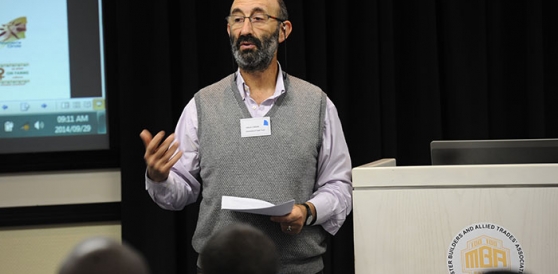Prof Leslie London wins prestigious PHILA award


The Public Health Association of South Africa’s (PHASA) PHILA Award is an award that honours excellence and commitment to public health. PHILA is an acronym for Public Health Innovation and Lifetime Achievement and also plays on the isiZulu word “phila” meaning life.
For this year’s PHILA Lifetitme Achievement Award winner Professor Leslie London, Head of the Division of Public Health Medicine in the School of Public Health and Family Medicine, the award is more than a nod to academic rigour and quality. It is a testament to social justice, one’s wilingeness to speak truth to power and a commitment to fighting and advocating for a better life. We spoke to Prof London about the award, what motivates him and his work.
Congratulations on the PHILA award. It is the highest honour in the Public Health discipline in the country, how do you feel and what does winning this award mean to you?
It means a great deal. The Public Health Association of South Africa is the voice of the public health community at large so being recognised for a lifetime contribution is deeply gratifying. Since it is based on judgement from my peers I feel vindicated for the kind of public health I have tried to practice for my career – a public health which recognises and puts into practice both social justice and excellent science as equally important in achieving social change. I hope it sets a tone for future public health practitioners to feel that human rights, ethics, empowering vulnerable populations and speaking up when injustice is taking place is what will make public health relevant.
You have accomplished a lot in your career, what are some of your most cherished achievements?
My history of health advocacy and activism started when I was a student but probably one of my seminal experiences was working with survivors of torture both in providing services and in advocacy. We founded a Centre for the Treatment of Torture Survivors that still continues today in Woodstock, Cape Town.
After qualifying as a doctor I worked with farm workers in Cape Town and did my PhD in rural Bokkeveld, which helped give me the understanding and self-reflectiveness for a public health practice focused on social justice.
Then, the ability to merge formal public health skills and content with the study and application of human rights is something I feel very proud of. It is a growing field and I believe I have helped to build this, both locally and internationally – with direct benefits being seen in health policies. Inspiring young postgraduates to work in this field is incredibly gratifying. I have graduated over 40 Masters and PhD students and when I see some of them going on to become independent researchers and practitioners in the health and human rights field that is really an achievement to be proud of.
Lastly, my most recent work on community participation and the right to health is really the most exciting work I have done to date – challenging in many ways – not just the intellectual challenges involved in cross disciplinary work but also the practical challenges of trying to practice socially responsive research from an institution not very well geared to make such community-based research easy.
I would like to believe that I have helped to shape the practice of health in general towards a more human rights-sensitive orientation through the focus on human rights in health sciences education. So, today, the HPCSA includes human rights as a key element of graduate competencies, something that would have been unheard of some three or four decades ago. I can’t claim that is only as a result of our work on health and human rights training, but our engagement with the HPCSA on this had quite a lot to do with their realising the importance of human rights for health professional practice.
What inspires and motivates you to do what you do everyday?
There are three things:
Firstly, my students – whose ability to grow and mature through their research and to engage with the materials taught is always an inspiration to me. They also teach me many things for which I am grateful. I try my best to stay in touch and to continue to mentor them even after they have left my courses of completed their degrees and seeing their progress in a public health career is a source of satisfaction and pleasure hard to equal. I feel like this is really what makes a difference.
Secondly, I am driven by a commitment to addressing social injustice, not just in health, but broadly speaking, so my public health is always with that lens on. Whether it is rights issues in Drug-resistant TB, or finding optimal policies for reducing alcohol-related harms, or thinking through how National Health Insurance will benefit those who need health care most rather than those who can use power to maximise their benefit from Health System reorganisation – all of this is about challenging inequalities.
Thirdly, my peers and colleagues are an immense source of inspiration and one can never cease learning or benefiting from friendships and collegial support. There are many role models I have learned from and continue to learn from.